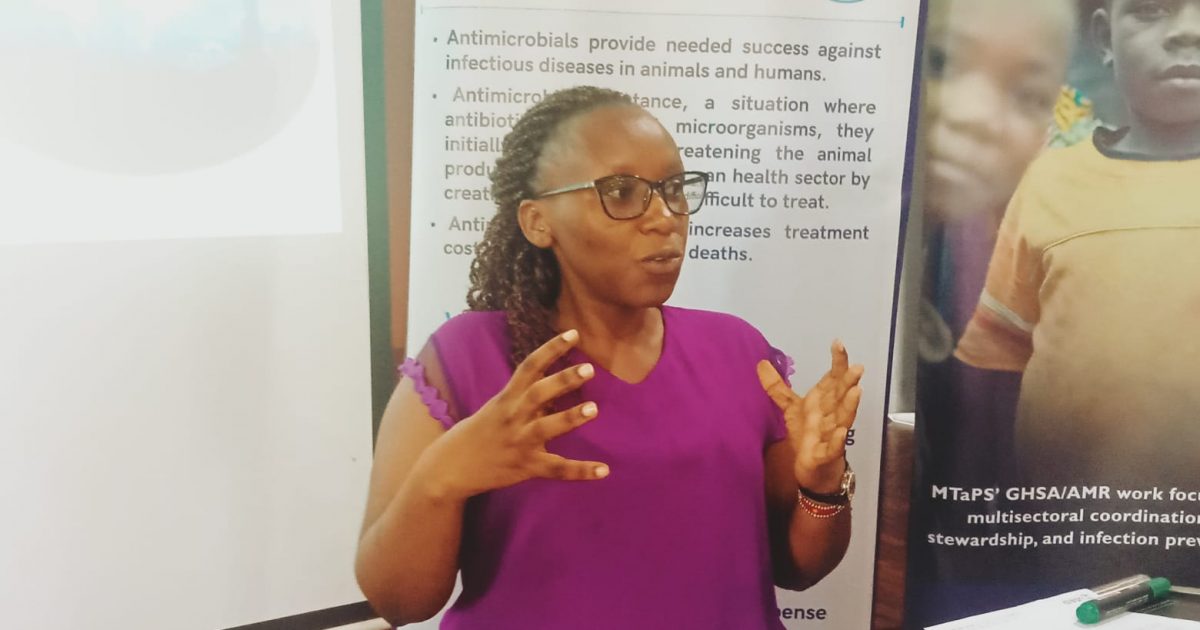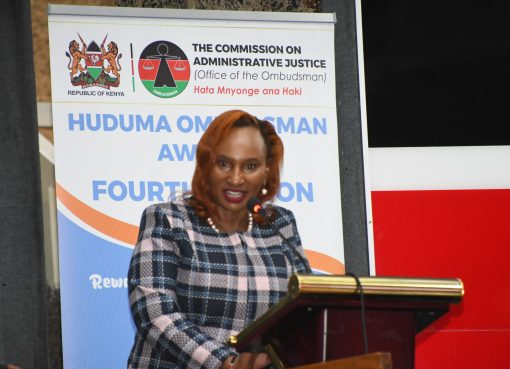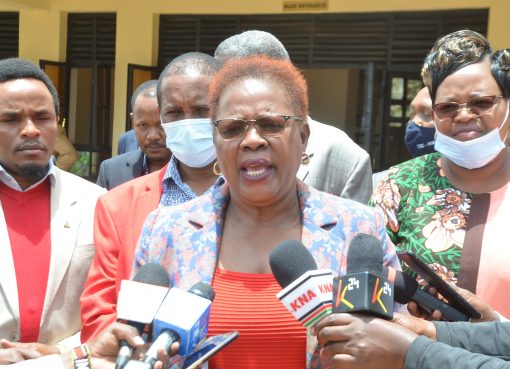The Department of Health Services in Murang’a County has called for concerted action from all Antimicrobial Resistance (AMR) stakeholders on the prevention and containment of AMR by breaking the chain of infection and transmission.
Murang’a county AMR Focal Person Dr. Loise Kariuki while addressing the stakeholders at a Murang’a Hotel, on Friday to mark World Antimicrobial Awareness Week said strengthening the Infection Prevention and control (IPC) in health care facilities, farms, and food industry premises and guaranteeing the sound management of waste and wastewater from key sectors are critical for combating AMR.
“The increasing burden of AMR calls for collaborative efforts through a multi-sectoral approach to tackle this silent ‘pandemic’,” said Kariuki, adding that the approach recognizes the close links between human, animal, and environmental health.
The World Health Organization (WHO) estimates that AMR will cause 10 million deaths annually by 2050 if efforts to address the scourge are not made.
AMR has been identified by the World Health Organization (WHO) as one of the top threats to global public health.
Kariuki urged the stakeholders to promote the prudence of the use of antimicrobial agents to safeguard their efficacy to ensure their continued success in the treatment and prevention of microbial diseases.
She said that one of the major factors attributing to AMR is the misuse and overuse of antimicrobial agents such as antibiotics, which lead to an increase in major illnesses and in severe cases the death of patients.
“Over time, bacteria, viruses, parasites, and fungi change and no longer respond to medicine, making infections difficult to treat,” she said, adding that the health department discourages the public from buying over-the-counter antibiotics without a prescription from a medical practitioner.
Dr. Kariuki observed that public awareness and education on the dangers of misuse of such antimicrobial agents will help in reducing the increasing burden of AMR
She further said other factors that contribute to AMR include not completing treatment, lack of hygiene and poor sanitation, poor infection control in hospitals and clinics, and overuse in livestock and fish farming.
“Others are the use of antimicrobials when they are not needed, that is, no infection is present and errors associated in use of antimicrobial including inappropriate dosage, duration of antimicrobial agents,” she further added.
Dr. Kariuki divulged that to prevent the spread of AMR healthcare providers and other stakeholders need to practice hand hygiene, correct use of personal protective equipment (PPE) like gloves, cleaning, disinfection, and sterilization of objects.
“Each Individual needs to practice good hygiene of washing hands with soap and clean water,” she said, adding that management of healthcare waste and safe handling of sharp objects is also critical in health facilities.
On her part, Dr Loise Ndung’u, a veterinarian doctor in a Murang’a County Hospital said that antimicrobial drug use is very critical in the human population owing to the fact that 75 percent of zoonotic diseases are transmittable from animal to human and vice versa.
“We need to be careful in the way we use and handle drugs both in the human population and animal population,” she said adding integration of human, animal, and environmental health will optimize one’s health.
This year’s World AMR Awareness Week is being celebrated from 20 -24 November under the theme “Preventing Antimicrobial Resistance Together”
By Anita Omwenga and Florence Kinyua




